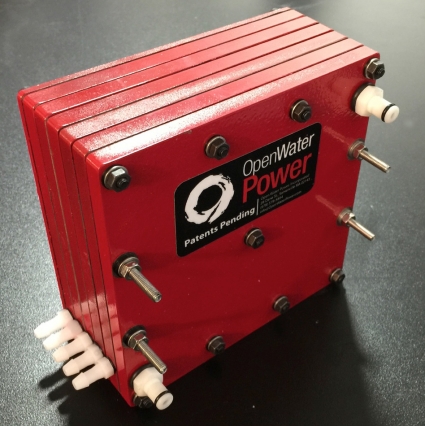
Image: Open Water Power
Unpiloted underwater vehicles (UUVs) are used for a wide array of tasks, including exploring ship wreckage, mapping the ocean floor, and military applications. Now, a team from MIT has developed an aluminum-water power system that will allow UUVs to become safer, more durable, and have ten times more range compared to UUVs powered by lithium-ion batteries.
“Everything people want to do underwater should get a lot easier,” says Ian Salmon Mckay, co-inventor of the device. “We’re off to conquer the oceans.”
The aluminum-water power system is a direct response to lithium-ion batteries, which have a limited energy density causing service ships to chaperone UUVs while at sea, recharging the batteries when necessary. Additionally, UUV lithium-ion batteries have to be encased in expensive metal pressure vessels, making the battery both short-lived and pricey for use in UUVs.
This from MIT:
In contrast, [Open Water Power’s] power system is safer, cheaper, and longer-lasting. It consists of a alloyed aluminum, a cathode alloyed with a combination of elements (primarily nickel), and an alkaline electrolyte that’s positioned between the electrodes.
When a UUV equipped with the power system is placed in the ocean, sea water is pulled into the battery, and is split at the cathode into hydroxide anions and hydrogen gas. The hydroxide anions interact with the aluminum anode, creating aluminum hydroxide and releasing electrons. Those electrons travel back toward the cathode, donating energy to a circuit along the way to begin the cycle anew. Both the aluminum hydroxide and hydrogen gas are jettisoned as harmless waste.
While the aluminum anode used will eventually corrode, researchers state that the replacement will be low cost.
“Our power system can drink sea water and discard waste products,” Mckay says. “But that exhaust is not harmful, compared to exhaust of terrestrial engines.”

